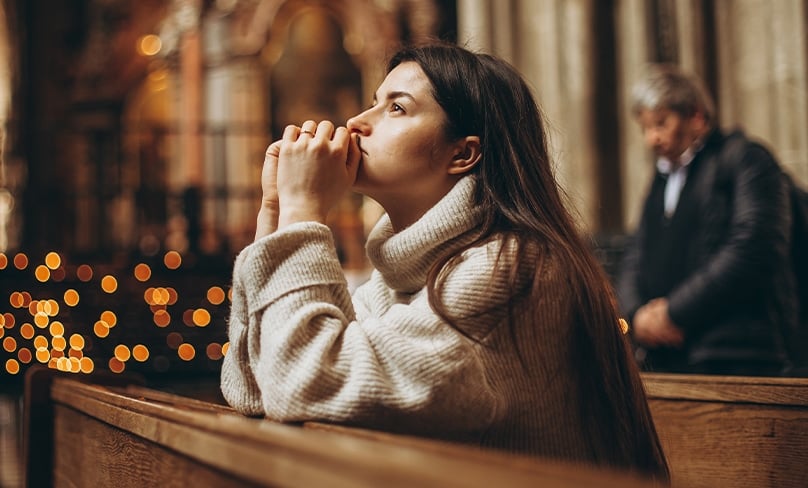
Australia’s Catholic converts, what do they believe? Why do they go to Mass? And what do they really think about the church?
My survey results have already shown some interesting differences between the under-40 (“younger”) and over-40 (“older”) Catholics in Australia. I’ve been exploring whether the same thing happens with Australian converts.
Just because an older group of converts shows one set of beliefs, and a younger group shows another, doesn’t mean that Catholicism “wears off” over time. Some studies can show this, but that’s because they’re tracking the same group of converts over time.
I’m not doing that. I’m just asking people right now how they are behaving, believing, and belonging.
What I can tell you is that there are differences between a Catholic who’s now in their 70s and who became a Catholic in their 20s—around 50 years ago—and a convert from perhaps the last ten or 20 years ago.
Perhaps that’s a “wearing off” effect with age and cynicism. But perhaps it’s also that converts who were instructed in the 1970s and 1980s got a different formation from converts in the 2000s and 2010s.
Let’s start with why converts say they go to Mass. Generally, they choose the same reasons as “very important” as most cradle Catholics in this survey.
They’re keen to grow closer to God, and to Jesus in the sacraments, and they want to receive Holy Communion. They tend to rank the other reasons—being friendly with other people at church, keeping the family happy—as less important.
Obviously very few converts chose the reason, “It connects me to my family or the way I was brought up” as “very important,” because that was not the case for them growing up.
As with cradle Catholics, older converts also don’t tend to choose the reason, “The church asks me to attend,” as “very important” either. They go to Mass because they love it anyway.
It might surprise you to learn that our converts are busier in the local church than cradle Catholics. Some 43 per cent of younger converts have at least one role in their local parish, compared to 38 per cent of cradle Catholics.
Older converts are also busier—44 per cent versus 38 per cent have at least one parish role.
So how firmly do they believe in God? Younger cradle Catholics score themselves more highly on a belief scale than younger converts, but it’s only a small difference of less than one per cent.
With older converts, it’s reversed—73 per cent rank themselves as firm believers compared to just 70 per cent of the older cradle Catholics.
When ranking how important the church is in their lives, more younger converts rank it as “the most important part” than younger cradle Catholics. But this reverses with the older generation—30 per cent of older cradle Catholics rank it as “most important”, but only 25 per cent of older converts do.
When asked how they understood Catholic belief, most converts said that it was a matter of really believing in it, rather than other factors such as ancestry or culture. Young converts also really want their children to marry other Catholics.
They want this even more so than cradle Catholics (68 per cent versus 61 per cent). But neither convert nor cradle older group is especially keen on it (22 per cent versus 31 per cent).
Young converts outranked even young cradle Catholics in their firm belief in life after death, heaven, hell, purgatory, religious miracles, the real presence of Jesus in the Eucharist, and the intercession of the saints.
They also felt the most strongly affiliated to the church. And they were more likely to rank themselves as “very religious” and to accept traditional Catholic teaching on sexuality and marriage.
They were less likely than cradle Catholics to describe using non-renewables, living in a house that was larger than your needs, and spending money on luxuries without giving to the poor, as sinful.
With questions about changing the church’s teaching on ordination and other key issues, younger converts were more strongly in favour of the church’s traditional teachings and doctrines than even the young cradle Catholics.
But converts don’t tend to have as many Catholic friends as cradle Catholics. And like cradle Catholics, they were harder on “the bishops” than on “my bishop”.
What a fascinating group of people our converts are! And how much more we could learn from them if we listened to them—or even just counted them.
